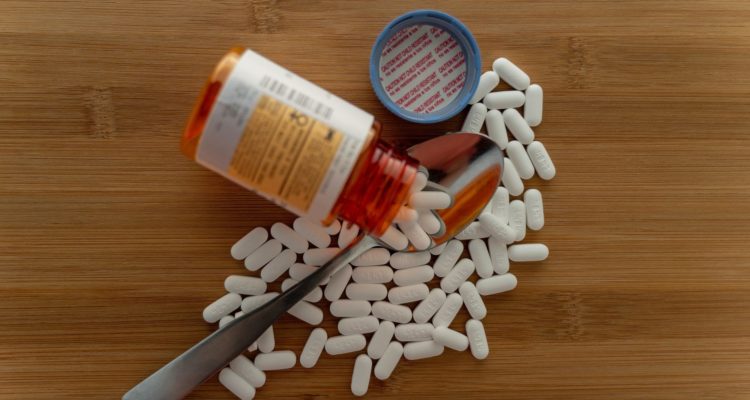
When it comes to sex there is only one thing you can count on. Everyone lies. And I mean lies a lot! Whether is it is the orgasmic height, amount, penis size, G spot climax, duration, number of partners (usually men lying to the upside and women to downside) or whatever, if it is about sex, it is likely a fictional tale with a lot of long-noses. So, what is “normal”? That’s easy, like bowel movements, there is no “normal”. There is an average, but it comes with wide brackets. Each person has their normal and an abrupt deviation from it is abnormal. For example, for a person that thinks about sex 24/7 to not think about it at all is abnormal or for someone who rarely thinks about it to suddenly start thinking about it constantly is abnormal. So, it is normal that some people like sex frequently and some people are simply not that interested in it at all. Either way it’s okay.
Is sex good for health?
Yes. Physically, mentally, and emotionally all good. Physically some of the benefits are a lower blood pressure, lower heart disease risk, stronger immunity, reduced pain and better sleep. Mentally regular sex offers a better sense of well-being, self-esteem, and increased libido. Emotionally sex decreases depression, anxiety while increasing feelings of security and intimacy with their sex partner. Also, being sexually content reduces stress which helps all areas of health.
The benefits of sex require no more than once a week activity with little benefit in increasing the frequency other than sexual contentment if more is desired. For those of you that are more asexual and don’t really have much interest, no worries, most likely you will enjoy a long and healthy life like the more promiscuous people. Some people just channel their passion on other bandwidths. It’s all good.
So, what is average?
Studies show for married couples it is about 54 times per year which is basically once a week. That is the average with a wide variation from multiple times daily to once or twice a year. When asking individuals regardless of marital status the average numbers are as follows: Individuals 21-30 years of age report having sex an average of 112 times a year, 31-40 it is 86 times, 41-49 it is 69 times and 50-59 it is 52 times. As the numbers show there is a decline as the age gets older due to multiple factors including a decline in sex hormones, changing values, priorities, health status and for couples there is usually a “sex satiation” factor after 2 to 3 years. A commonly observed decline in the frequency of sex attributed to the “been there, done that” phenomena.
So, when is having a low libido, sex interest or appetite considered abnormal?
For both males and females having a low libido may be normal and fine. Low libido can be caused by physical conditions, psychological conditions, medications or situational difficulties like extreme stress or fatigue. But when lack or absence of sexual thoughts, fantasies or desires cause personal distress and/or relationship problems then it is considered a disorder. And qualifies as Hypoactive Sexual Desire Disorder (HSDD) if it lasts longer than 6 months and is not related to a reversable condition. It is estimated that 10% of women suffer HSDD with some estimates as high as 25-35%. The incidence is thought to be lower for men at around 3-4%.
What conditions can cause low libido or HSDD?
- Medical problems especially if it effects circulation or metabolism such as heart disease, high blood pressure, thyroid disorders, cancers, and diabetes.
- Psychological problems like major stress, depression, and anxiety.
- Certain medications namely antidepressants, anxiolytics, and high blood pressure medications.
- Relationship problems. Especially those involving trust, finances, children, or security issues.
- Low hormone levels of testosterone for males and estrogen for females can cause a lowered libido as can high levels of prolactin particularly in men.
When no other psychological or physical condition is thought to cause HSDD it is believed to be a chemical imbalance of neurotransmitters between sexually excitatory neurochemicals like dopamine, norepinephrine, oxytocin and melanocortin to inhibitory ones like serotonin, endocannabinoids, opioids, and prolactin.
Ways to increase sex drive
- If it is due to a medical condition or medication, then treating the medical condition or switching the medication can help if not resolve the libido problem.
- Regular exercise to improve circulation to the sex organs as well as boost testosterone levels. Kegel exercise for both men and women can strengthen the pelvic floor which can increase sexual satisfaction and for women decrease discomfort if sex is a painful experience.
- Add some variety if sex has become too routine like toys, vibrators, different positions, exploring erotic zones and even self-pleasuring can enhance arousal, the sexual experience and increase desire.
- Avoid excessive alcohol and smoking both of which can lower libido, decrease sexual sensation, and cause circulatory problems like poor erections and decreased vaginal blood flow and which can potentiate vaginal discomfort.
- If it is a relationship or intimacy problem then seeing a therapist, improving communications with your partner, and talking more openly about how your feelings can often help.
- Seeing a cognitive behavior specialist may help for depression and anxiety related poor libido.
- For stress issues scheduling time for sex and/or dates can help as well as other general stress reducing strategies like mindfulness or meditation.
- If you are overweight, then weight loss can help. Adipose cells contain aromatase which help biosynthesize estrogens. In males, estrogen can lower the testosterone levels and sexual drive. Also getting regular exercise and proper nutrition can help increase testosterone levels naturally.
What are the pharmacotherapies for HSDD?
- Estrogen or bioidentical hormonal therapies for women. After menopause estrogen levels drop significantly for females which may have a dramatic effect on libido. Many women not only experience a decline in libido but also decreased arousal and ability to climax as well as sexual discomfort. Replacing estrogen can help not only the sex drive but bring back sexual pleasure and reduce discomfort. However, hormonal therapy is not for all women and does carry some risks like increased chance of blood clots and breast cancer, but it does have a few benefits like increased bone health and can improve cholesterol numbers. Common side effects include acne, weight gain, facial hair, fatigue, and breast tenderness.
- Testosterone replacement therapy (TRT) for both males and females. Testosterone is the strongest sex drive hormone for males and plays a significant but not as well understood role for female libido. Males with low testosterone can benefit from TRT to physiologic levels while females often respond to TRT at supraphysiologic levels. TRT is not for everybody and carries risk when used with some medication conditions. Common side effects include acne, male pattern baldness, increase facial hair, and possible breast growth and tenderness.
- Addyi (flibanserin), one of two FDA approved medications for HSDD in females, is a pill taken once a day and works by decreasing serotonergic activity and increasing dopaminergic activity in areas of the brain which favors stronger libido. However, it has a major side effect which it can cause a very low blood pressure which can lead to loss of consciousness especially when using alcohol. So, you cannot drink and boost drive at the same time with Addyi.
- Vyleesi (Bremelanotide), the other FDA approved medication for female HSDD, is an injection self-administered 45 minutes prior to sex. The active ingredient is melanocortin and it improves drive about 25% of the time and lowers distress 35% of the time. The main side effect is nausea in about 45% of females who use it with 13% needing to take something for it.
- Buspirone (Buspar) is an anxiety medication that can be used off label. It affects serotonergic activity in the brain which is proposed at the mechanism of action. Trials showed 58% of users report increased sex drive. It is very well tolerated with dizziness the most common side effect. It is usually dosed multiple times a day for anxiety but can also be used as needed taken an hour or so before a planned sexual arousal.
- Bupropion (Wellbutrin) is an antidepressant medication that also is used off label for HSDD. It acts to increase norepinephrine and dopamine in the brain. It is typically well-tolerated although side effects of tremor, dry mouth, agitation, and constipation are not uncommon. It is taken once a day.
- Zestra oil is a natural mix of oils and herbal therapies that has demonstrated a significant increase in arousal over placebo oil when massaged into the vaginal vault 5-10 minutes prior to a sexual or self-pleasuring experience. It lasts about 30-45 minutes but does cause vaginal burning in about 15% of users.
So, there you have it. When it comes to sex you don’t need to lie. It is okay to be normal. But then again lying about sex is normal too.

